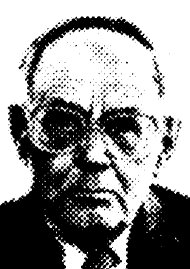Karl Rahner

Last week Tab posted a quote from Karl Rahner, so I've been rereading the chapter on his ideas in The Tapestry of Christian Theology. There's a fair bit that I don't understand.
One thing I find interesting is Rahner's understanding of the hypostatic union - the nature of Jesus as completely human, but at the same time completely God. It seems like Rahner reckoned that it made sense for the Christ to be completly God and completely human because if God became a human he would actually be more human than the other humans around him. He would be human in the way that he origianlly intended all people to be. In 'On the Theology of the Incarnation' he says,
Thus Christ is most radically man, and his humanity is freest and most independant, not in spite of, but because of its being taken up, by being constituted as the self-utterance of God.It seems he also reckoned that since spiritual things and material things both come from God, they shouldn't be seen as though they're in conflict with each other. He thought that we shouldn't want to transcend physicality, because we can learn about God's nature through his physical creation. (That's what the quote Tab used was about.) He reckoned that a person is constantly in relationship with God, but not always consciously, or in a way that they could explain with words. It's similar to Michael Polanyi's idea of tacit knowledge, that 'we know more than we can tell.'
There's a whole heap of other stuff too, but I find it difficult to get my head around. Might write about more of his ideas another time.

2 comments:
Yea, interesting stuff. I just had an exam this morning on almost that exact same topic!
just a note: the council of chalcedon had said that christ was "fully human, fully divine" way back in the 5th century. the trick for xns has always been how to describe that. if you havent read rahner's "chalcedon: beginning or end?" its a nice article.
and rahner is just freaking brilliant!
best wishes.
Post a Comment